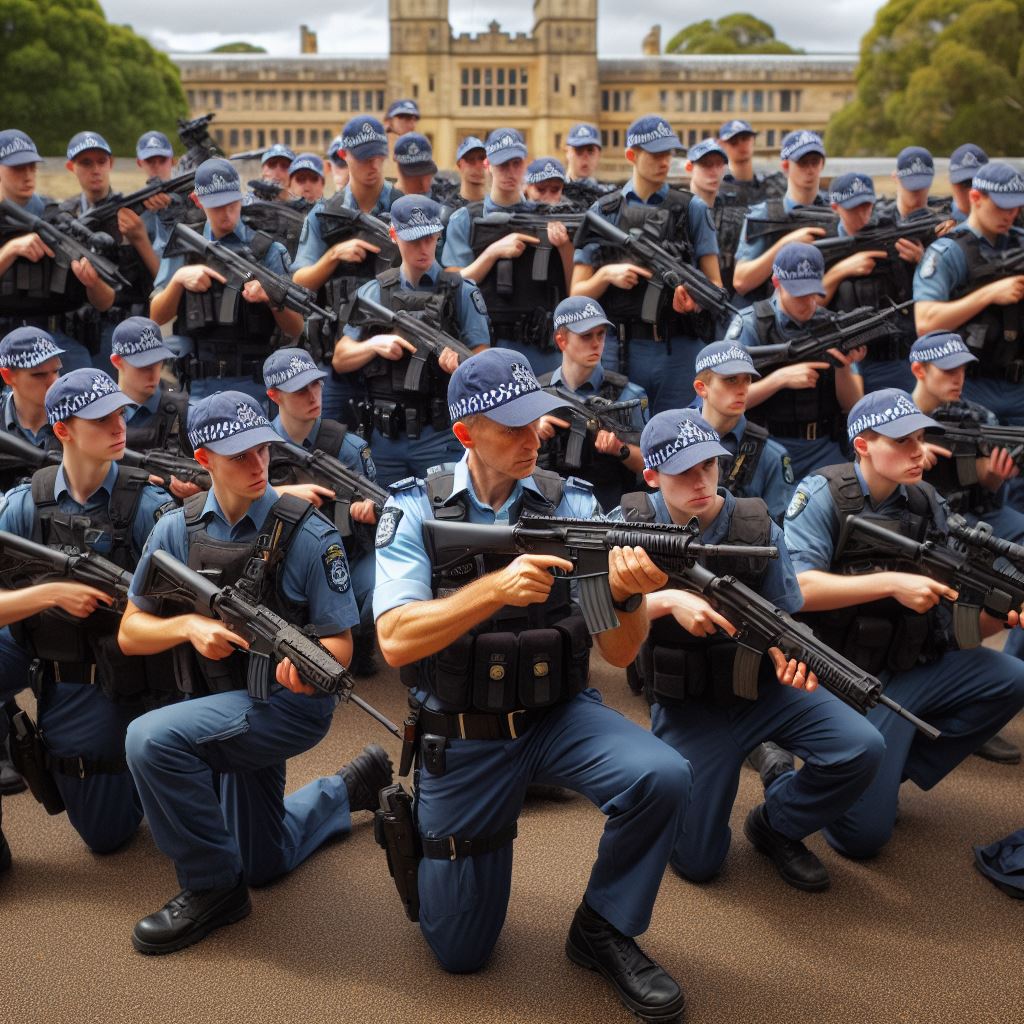Introduction
In diplomacy, crises are inevitable, demanding swift and effective management to prevent escalation and maintain international stability.
Crisis management is a dynamic process, requiring proactive strategies and collaborative efforts to navigate challenging situations.
Diplomats must respond decisively, utilizing negotiation, communication, and strategic planning to defuse tensions and find diplomatic solutions.
Whether facing political disputes, conflicts, or emergencies, adept crisis management is pivotal in preserving global peace and security.
This section explores the fundamental principles, challenges, and successful strategies essential in crisis management within diplomatic contexts.
Analyzing real-world scenarios and drawing insights from historical crises, we unravel the complexities diplomats face in turbulent times.
Effective crisis management not only resolves immediate issues but also fosters stronger diplomatic ties and resilient international relations.
As we delve into this crucial aspect of diplomacy, we’ll explore case studies, best practices, and the evolving landscape of crisis management.
From diplomatic protocols to the role of international organizations, every facet plays a vital role in crisis resolution and prevention.
The urgency of crisis management requires diplomats to be agile, resourceful, and adept at building bridges even in times of adversity.
Through skillful crisis management, diplomats can transform challenges into opportunities, ultimately contributing to a more stable and harmonious world.
Principles of Crisis Management in Diplomacy
- Preparing for crises: Diplomats must anticipate potential crises and have contingency plans in place to address them effectively.
- Swift response: Diplomats should respond promptly and decisively to crisis situations to prevent further escalation.
- Communication and coordination: Effective communication and coordination between diplomats and relevant stakeholders are essential for crisis management.
- Building trust and promoting dialogue: Diplomats strive to build trust among nations and promote dialogue to resolve crises peacefully.
Challenges in Crisis Management
- Limited timeframes: Crisis situations require quick decision-making and actions, leaving little room for extensive analysis.
- High stakes and emotions: Crises often involve high stakes and heightened emotions, making diplomacy more challenging.
- Balancing national interests: Diplomats must delicately balance their own country’s interests with finding mutually acceptable solutions.
- Media scrutiny: Crisis management in diplomacy is closely observed by the media, increasing the pressure on diplomats.
Crisis management plays a crucial role in diplomacy, preventing conflicts from escalating and safeguarding international stability.
Diplomats must possess the skills of effective communication, swift decision-making, and maintaining trust to successfully manage crises.
By understanding the principles and challenges of crisis management, diplomats can navigate through turbulent times and foster peaceful resolutions.
Importance of Crisis Management in Diplomacy
A successful crisis management strategy is crucial in diplomacy for various reasons:
Protecting national interests
- Effective crisis management helps in safeguarding a nation’s economic, political, and security interests.
- By addressing crises promptly and efficiently, governments can minimize potential damages and risks.
- It allows for the protection of national assets and resources, ensuring the continuity of essential operations.
- Crisis management enables diplomats to negotiate and defend their country’s interests during challenging times.
- Through proactive measures, crises can be resolved in a manner that aligns with national objectives.
Maintaining international relations
- Crisis management plays a vital role in preserving healthy relationships between nations.
- By effectively managing crises, diplomats can prevent conflicts from escalating into full-scale wars.
- Open and transparent communication during crises enhances trust and cooperation among nations.
- Resolving disputes through diplomatic means helps maintain peace and stability in the international community.
- Diplomats act as intermediaries, facilitating negotiations and finding mutually beneficial solutions.
Preserving reputation and credibility
- Successful crisis management helps protect a country’s reputation and credibility on the global stage.
- Swift and decisive actions during crises demonstrate leadership and competence to the international community.
- Effective crisis responses can mitigate the negative perception of a nation in times of turmoil.
- Maintaining credibility allows diplomats to be influential and persuasive in diplomatic negotiations.
- A reputation for efficient crisis management can attract investment and spur economic growth.
Overall, crisis management is an indispensable aspect of diplomacy, providing numerous benefits
- Preservation of national security and interests
- Maintenance of peaceful international relations
- Enhancement of a nation’s reputation and credibility on the global stage
- Creation of a favorable environment for economic growth and development
- Establishment of diplomatic influence and leadership
By prioritizing crisis management, diplomats can effectively navigate through turbulent times and achieve favorable outcomes for their nations.
Key Elements of Crisis Management in Diplomacy
Early identification and assessment of crises
- Establishing a comprehensive monitoring system to detect potential crises in their early stages
- Conducting thorough risk assessments and analyzing the impact of potential crises
- Developing protocols and mechanisms to quickly identify and report emerging crises within the diplomatic community
Communication and information management
- Ensuring effective communication channels both internally and externally to facilitate information sharing during crises
- Establishing crisis communication teams composed of experts skilled in messaging, media relations, and public affairs
- Utilizing various communication tools, such as social media, press releases, and public statements, to disseminate accurate and timely information
Development of strategic response plans
- Formulating comprehensive crisis response plans that outline specific actions and strategies to mitigate and address crises
- Identifying key decision-makers and allocating specific responsibilities in the crisis response plan
- Conducting regular drills and simulations to test the efficacy of response plans and identify areas for improvement
Coordination with relevant stakeholders
- Establishing strong networks and lines of communication with relevant stakeholders, including other diplomatic missions, international organizations, and local authorities
- Collaborating and sharing best practices with other diplomatic missions to enhance crisis management capabilities
- Engaging in diplomatic negotiations and dialogue to find diplomatic solutions to crises
Crisis management in diplomacy requires a multi-faceted approach that incorporates the early identification and assessment of crises, effective communication and information management, the development of strategic response plans, and coordination with relevant stakeholders.
By implementing these key elements, diplomatic missions can better navigate and mitigate crises, safeguarding their interests and promoting stability in international relations.
Read: Diplomatic Immunity: The Basics
Case Studies: Examples of Effective Crisis Management in Diplomacy
Cuban Missile Crisis
Background and Context
The Cuban Missile Crisis occurred in October 1962 during the Cold War when the United States discovered Soviet missiles in Cuba.
It was a significant crisis as it brought the world to the brink of nuclear war.
The crisis was triggered by the U.S. discovery of Soviet ballistic missile installations in Cuba, just 90 miles off its coast.
This placed the U.S. in a vulnerable position and raised considerable concerns about national security.
Diplomatic Efforts and Negotiations
President John F. Kennedy and his administration carefully considered the available options.
They engaged in diplomatic strategies to resolve the crisis and prevent a nuclear confrontation.
Kennedy established an Executive Committee (ExComm) to advise him and develop appropriate responses.
Your Personalized Career Strategy
Unlock your potential with tailored career consulting. Get clear, actionable steps designed for your success. Start now!
Get StartedThe U.S. initiated a naval blockade around Cuba to prevent further missile deliveries, signaling a strong stance against the Soviets.
Both the U.S. and the Soviet Union engaged in secret negotiation channels to find a peaceful resolution.
Resolution and Lessons Learned
After days of intense negotiations, the crisis was ultimately resolved peacefully.
The Soviets agreed to dismantle the missile installations in Cuba, and the U.S. agreed not to invade the island.
The resolution ensured that the risk of a nuclear war was significantly reduced.
Lessons learned include the importance of effective diplomatic communication, negotiation, and crisis prevention strategies.
It highlighted the need for nations to engage in dialogue and maintain open lines of communication, even during tense situations.
Iranian Hostage Crisis
Overview of the Crisis
The Iranian Hostage Crisis began in November 1979 when Iranian militants seized the U.S. Embassy in Tehran.
Fifty-two American diplomats and citizens were held hostage for 444 days.
The crisis strained relations between the U.S. and Iran and had significant international implications.
Diplomatic Strategies Employed
The U.S. initially focused on military rescue attempts, which were unsuccessful.
Diplomatic strategies, such as economic sanctions and political pressure, were then employed to negotiate the hostages’ release.
The U.S. engaged in diplomatic talks with Iran, seeking a peaceful resolution to the crisis.
International mediation efforts were also explored, involving countries like Algeria and the United Nations.
Stand Out with a Resume That Gets Results
Your career is worth more than a generic template. Let us craft a resume and cover letter that showcase your unique strengths and help you secure that dream job.
Get HiredOutcomes and Implications
The hostages were eventually released in January 1981, minutes after President Ronald Reagan’s inauguration.
The crisis had a lasting impact on U.S.-Iran relations, with diplomatic ties severed for decades.
It highlighted the complexities of diplomatic negotiations and the importance of patience and perseverance.
The crisis also emphasized the need for countries to prioritize the safety of their citizens in diplomatic missions.
Essentially, the Cuban Missile Crisis and the Iranian Hostage Crisis serve as powerful case studies of effective crisis management in diplomacy.
They demonstrate the significance of diplomatic efforts, negotiations, and the lessons learned from resolving complex international crises.
Read: Understanding Ranks in Australian Police Force

Challenges and Limitations of Crisis Management in Diplomacy
Political Constraints
In crisis management, diplomats often face political constraints that hinder effective resolution.
These constraints can include political rivalries, conflicting ideologies, and vested interests.
Politicians may prioritize domestic concerns over diplomatic solutions, impeding crisis management efforts.
This clash of political interests can prolong crises and prevent timely resolutions.
Cultural and Language Barriers
Diplomacy requires effective communication, but cultural and language barriers pose significant challenges.
Diplomats must navigate diverse cultural norms and sensitivities to understand and address crises adequately.
Language barriers can lead to misunderstandings, misinterpretations, and further exacerbate crisis situations.
Transform Your LinkedIn for Maximum Impact
Elevate your professional brand with a LinkedIn profile that attracts recruiters, showcases your expertise, and maximizes opportunities. Stand out in your industry with a profile built for success.
Boost ProfileEfforts to overcome these barriers through translation and cultural sensitivity are essential for effective crisis management.
Interests of Multiple Stakeholders
Crisis management in diplomacy involves navigating the interests and demands of multiple stakeholders.
Diplomats must consider the concerns of political leaders, governments, international organizations, and affected parties.
Each stakeholder may have different priorities, making consensus and effective decision-making challenging.
Successfully managing a crisis requires diplomats to balance these varying interests while working towards a resolution.
Media and Public Opinion
The influence of media and public opinion adds complexity to crisis management in diplomacy.
Media coverage can shape public perception, contribute to the diplomatic pressure, or fuel further escalation.
Public opinion can influence political decisions and constrain diplomats’ options during crisis negotiations.
Navigating the media landscape and public sentiment becomes crucial for effective crisis management.
In review, crisis management in diplomacy faces various challenges and limitations that test diplomats’ expertise and skills.
Political constraints, cultural and language barriers, multiple stakeholder interests, and media influence all contribute to these challenges.
However, by understanding and addressing these limitations, diplomats can enhance their crisis management capabilities and work towards peaceful resolutions.
Read: How to Become a Police Officer in Australia
Strategies for Effective Crisis Management in Diplomacy
Developing strong diplomatic relationships
In order to effectively manage crises in diplomacy, it is crucial to build strong and trusted relationships with other nations. Through open dialogue and mutual respect, diplomatic channels can become a foundation for resolving potential crises before they escalate.
By fostering diplomatic relationships, countries can establish a sense of trust and understanding, allowing for effective communication during times of crisis.
This includes engaging in regular diplomatic exchanges, promoting cultural understanding, and addressing potential conflicts proactively. Investing in diplomacy training and education
One of the key strategies for effective crisis management in diplomacy is to invest in comprehensive training and education for diplomats and government officials. This ensures that they possess the necessary skills and knowledge to handle crises efficiently.
Diplomacy training programs can cover a wide range of topics, including conflict resolution, negotiation techniques, crisis communication, and international law. By equipping diplomats with these tools, they can better navigate through crises and work towards peaceful resolutions.
Utilizing technology and innovation
Technology and innovation can play a vital role in crisis management in diplomacy. With the advancements in communication technology, diplomats can now exchange information and coordinate efforts more efficiently and securely.
Utilizing digital platforms for diplomacy, such as video conferences and encrypted communications, allows for immediate and real-time responses during crises.
This enables diplomats to stay connected, share information rapidly, and engage in collaborative problem-solving, even when geographically separated.
Strengthening international cooperation and collaboration
Effective crisis management in diplomacy heavily relies on strengthening international cooperation and collaboration. By working collectively, nations can tap into a wider pool of resources and expertise to address and resolve crises.
Through multilateral organizations, nations can pool their knowledge, share best practices, and coordinate responses to crises effectively.
Additionally, establishing crisis management frameworks and protocols at the international level can streamline the decision-making processes and facilitate timely responses to emerging crises.
Furthermore, diplomatic efforts should focus on nurturing regional alliances and cooperation, as regional approaches often yield more effective crisis management strategies due to shared cultural, political, and economic ties.
Essence, effective crisis management in diplomacy requires the development of strong diplomatic relationships, investment in diplomacy training and education, utilization of technology and innovation, and strengthening international cooperation and collaboration.
By implementing these strategies, nations can navigate through crises successfully and work towards peaceful resolutions.
Read: Day in the Life of an Aussie Police Officer
You Might Also Like: The Role of Embassies in Diplomacy
Conclusion
Recap of the importance of crisis management in diplomacy
Crisis management is crucial in diplomacy to prevent escalation and maintain international relations.
Final thoughts on the future of crisis management in diplomacy
As crises become more complex and frequent, diplomacy must adapt with proactive strategies and effective communication.
Ultimately, crisis management plays a vital role in diplomacy by preventing conflicts from escalating and preserving international relationships. It is crucial for diplomats to possess strong crisis management skills to effectively navigate through tense situations and find peaceful resolutions.
By employing proactive strategies and maintaining open lines of communication, diplomats can prevent crises or effectively manage them when they arise.
Looking to the future, crisis management in diplomacy must continue to evolve and adapt to the changing international landscape.
With the increasing complexity and frequency of crises, diplomatic efforts must become more proactive in identifying and addressing potential conflicts before they escalate.
Diplomats should invest in building strong relationships with key stakeholders and foster open dialogue to swiftly address emerging crises. Additionally, the use of advanced technology and data analytics can provide valuable insights and enhance crisis response capabilities.
In closing, crisis management in diplomacy is an ongoing and dynamic process that requires constant attention and adaptation.
By recognizing its importance and investing in training and resources, diplomats can effectively navigate through crises and contribute to a more peaceful and stable world.
Crisis management should be seen as an opportunity to strengthen international relations rather than as a setback, and by adopting a proactive and strategic approach, diplomats can successfully manage and mitigate the impact of crises in the future.




